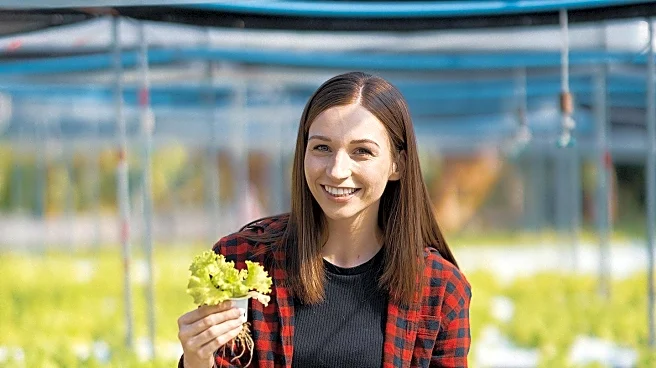What's Happening?
Saint Bede’s College has initiated a sustainable farming project as part of its agriculture program, providing students with practical experience in cultivating fresh produce. The project, which began in May, has successfully sold crops and supplied over 1,000 meals for boarding students using vegetables grown in the school garden. Teacher Masina Petueli highlights the project's role in equipping students with practical skills and promoting healthy eating habits. The garden currently produces long beans, lettuce, cabbage, cucumber, and eggplant. The initiative also addresses soil exhaustion by utilizing compost supplied by the agriculture department, replacing inorganic fertilizers. Plans are underway to expand the project, ensuring the continuity of crop production and educational benefits for students.
Why It's Important?
The sustainable farming initiative at Saint Bede’s College is significant as it integrates practical agricultural education with nutritional benefits for students. By engaging in hands-on farming, students gain valuable skills that can be applied in future careers or personal endeavors. The project also promotes environmental sustainability by reducing reliance on inorganic fertilizers and enhancing soil health through composting. Additionally, the initiative supports the school's food supply, contributing to the well-being of boarding students. This model of education could inspire other institutions to adopt similar programs, fostering a generation that values sustainability and self-sufficiency.
What's Next?
The school plans to expand the sustainable farming project, focusing on maintaining crop production during school breaks. This expansion aims to provide continuous educational and nutritional benefits to students. The success of this initiative may encourage further collaboration with the agriculture department and potentially attract support from other educational and environmental organizations. As the project grows, it could serve as a case study for integrating sustainable practices into educational curricula, influencing policy and program development in schools across the region.











